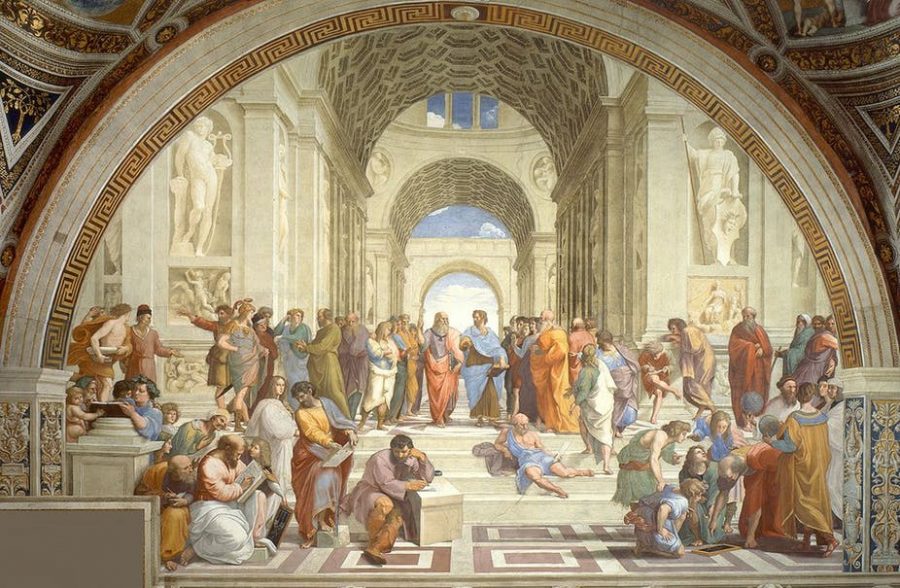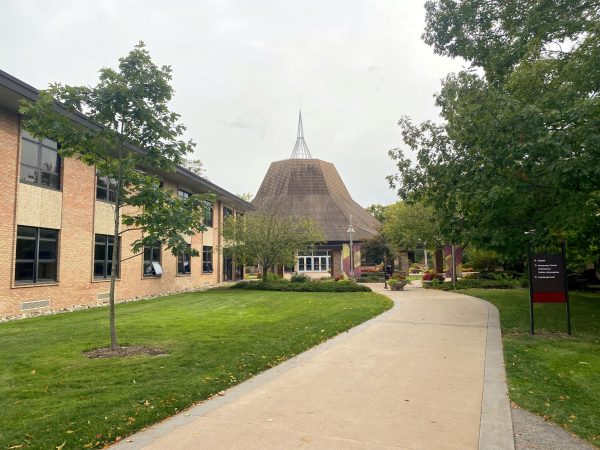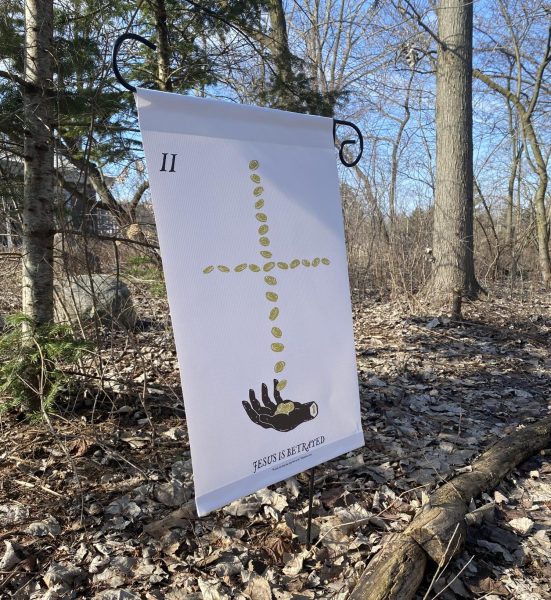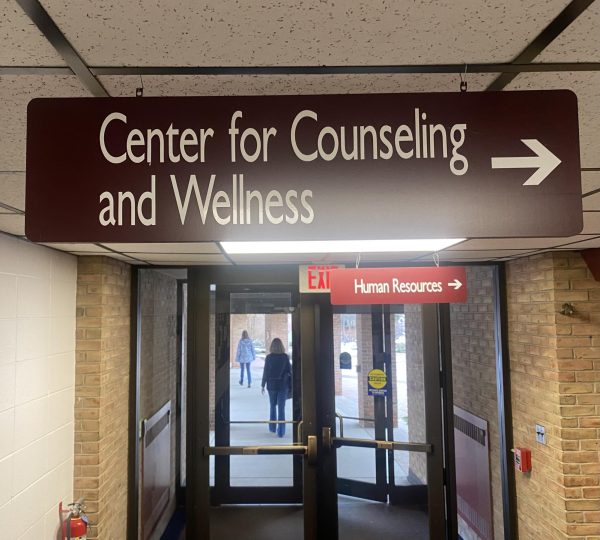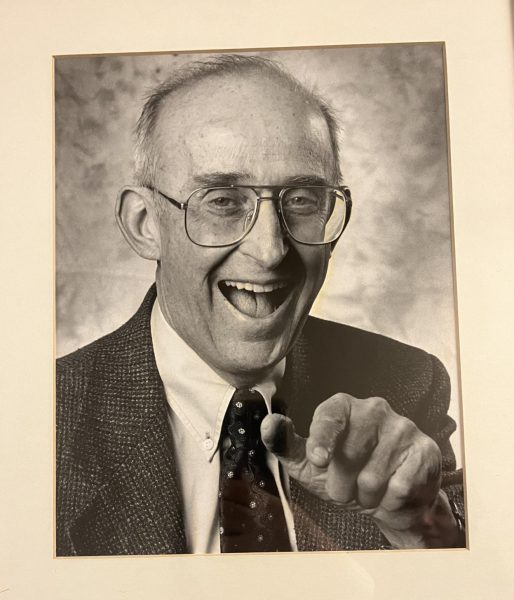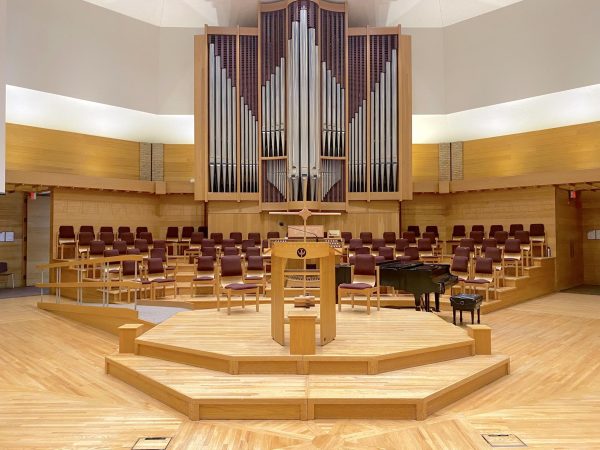Young Ahn Kang speaks on the philosophy of everyday life
The philosophy department and symposium hosted Young Ahn Kang for a lecture on the philosophy of everyday life on Nov. 28 to an audience of roughly 30 students and professors. Kang is a visiting professor of philosophical theology at Calvin Theological Seminary for this year and next year while he is away from his professor emeritus position at the Jesuit-founded Sogang University in Seoul, South Korea. The lecture, titled “The Philosophy of Everyday Life: Eating, Drinking, and Sleeping,” was presented in a question and answer format with professor Lee Hardy of the philosophy department.
Kang has studied in Korea, Belgium and the Netherlands, and he taught philosophy at Calvin in the early 2000s. After presenting Kang’s academic and professional history, Hardy asked why there is a need to do philosophy on everyday activities since philosophy is perceived to be associated with more abstract and lofty ideas.
“Everyday life cannot escape philosophical reflection,” Kang responded. Philosophy’s roots, he said, are in the everyday life.The ancient philosophical question of how to live the good life belongs in that daily cycle. Kang went on to discuss how Asian traditions such as Zen Buddhism and the philosophy of Herman Dooyeweerd, a 20th century Dutch philosopher whose work is influential in the Reformed tradition, spurred his interest in the philosophy of everyday life.
Kang clarified the difference between the philosophy for and of daily life. Philosophy for everyday life is intended as a guide to living a better life on a day-to-day basis. The philosophy of everyday life is a philosophy to reflect on everyday life as the we are the objects of everyday life. The philosophy of everyday life is broader than the philosophy for everyday life since it contains the ethics, phenomenology and hermeneutics of everyday life.
When pressed on what characterizes everyday life, Kang gave five descriptors: necessity, similarity, ordinariness, repetition and transience. These qualifications encompass things most all humans have in common and do regularly. For example, whether one eats food staples or delicacies, everyone eats. People get caught up in the habits of everyday life and may try to escape by travelling, but the first things people do when they arrive are eat, drink, walk and sleep —the same everyday activities as before.
Kang described how to do the philosophy of everyday life by first describing it:
“Look carefully, look closely at what we are doing. What happens when we eat? What happens when we sleep? What happens when we walk?” According to the philosopher, humans must ask what this means and ask how and in what way we should participate in these activities. Kang cited the way we eat as one way in which we differ from animals. Here he brought up a distinction that the German language makes between what people do— “essen,” to eat or dine—and what animals do—“fressen,” to feed on or guzzle.
Kang also notably observed that food is a kind of sacrifice. Edibility is first defined by what is digestible, and second by what is permissible. He urged listeners to appreciate that everything we eat depends on the death of something else. In the final minutes of his lecture, Kang expanded into other topics from the title:
“Sleep is like grace; it comes to us. It is a gift.”
Kang concluded by producing a small library of books from his briefcase that also relate to the philosophy of everyday life: “The Hungry Soul” by Leon Kass, “The Present Alone is Our Happiness” by Pierre Hadot, “24/7” by Jonathan Crary, and “You Are What You Love” by Calvin’s own James K.A. Smith.




